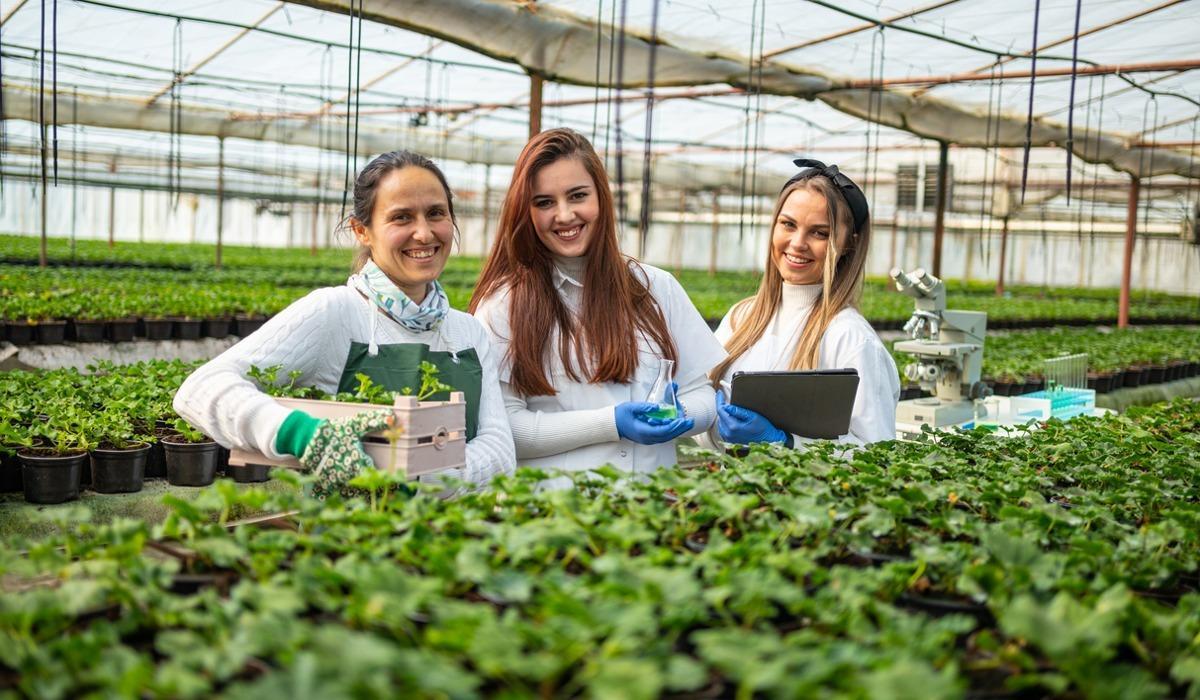
Agriculture is a staple of human civilization. We coexist with natural resources and wildlife, providing the sustenance we need to survive. As stewards of the planet, we must be responsible for sensibly handling our resources with equitable intent. For millennia, soil cultivation for crops and livestock production has influenced our world. The verdant pastures, gilded wheat fields, and wading fisheries entwined to introduce a foundation for social and economic prosperity. We blinked, and modern land management flourished across generations. The comforts we share today would be impossible without the principles of Agricultural Science guiding our works throughout history. TMCC’s new Associate of Science degree may shape your future in such prolific ways.
Faithfully Plant a Seed, Reap a Harvest
Let’s unravel the details before canvassing the gratifying, physical, sustainable, and fundamental pursuits you’ll experience in your studies: what to expect, academic outcomes, and career pathways. A two-year transferable program with dual tracks, General Agriculture and Animal Science, this curriculum will prepare you to emerge as a professional in a trade with immense employment potential and substantial salaries. Courses are in-person or online, so a flexible schedule can suit your learning style.
Globally, this industry is relentlessly booming, sprouting revolutionary technologies to advance efficiency using brilliant, noninvasive, environmentally sound methods. If you have an aptitude for Math, Science, and Economics, this degree program has a lot to offer and plenty of career choices.
In our daily lives, agricultural expertise is quintessential for nutrients, fuel, fabrics, sports, commerce, hygiene, and entertainment. Its threads span contemporary society’s privileges; what we find comfort in was likely grown on a farm. Don’t underestimate a single corn stalk’s versatility. For example, ethanol, an oil derivative of corn, is commonly found in gasoline, organically procured by ranchers. Its starch is a material in tire manufacturing, an interesting tidbit to consider when recharging your electric vehicle, filling up at the pump, or driving on the roadways. Careers in greenhouses, prairies, laboratories, and offices originate fresh ideas to carefully use agricultural products, safeguarding today’s populations for the future through their research.
Dr. Meeghan Gray, TMCC Biology Professor, candidly conveyed its value in Nevada and how students will inherit a dynamic familiarity with sustenance yields and their astronomical influence on civilizations.
“Agricultural science is under the biological umbrella, focusing on eatables and fiber creation. Our degree is the base for students to understand terminology, management principles, nutrition, physiology, and quantitative reasoning skills. This educational avenue will guide them to successful positions in a business eagerly seeking personnel,” Gray said.
This exceptional, conscientious calling has specializations galore. If you find an intriguing subject, pursue it. Check out this variety:
- Agribusiness Manager
- Agricultural Educator
- Agricultural Engineer
- Agricultural Equipment Technician
- Agricultural Journalist
- Agronomist
- Animal Breeder
- Aquaculturist
- Environmental Engineer
- Farmer
- Farm Equipment Mechanic
- Feed Mill Manager
- Livestock Producer
- Natural Resources Scientist
- Produce Inspector
- Soil Scientist
- Turf Manager
- Veterinarian
- Wildlife Biologist
Your experiments could uncover or advance historic, novel techniques that benefit our ecosystem, conserving energy, labor costs, and water. Imagine inventing transformative practices to process, package, and deliver produce. Study the terrain’s composition beneath your feet and brainstorm strategies to enrich it. Communicate your findings to scientific agencies, distribution facilities, and the public for collaboration. Travel between centers to oversee the implementation of current projects. Wherever this undertaking leads, you’ll be prominent in evolving our purpose and, by extension, the locations we call home.
“Agriculture impacts everyone and is critical to maintaining and developing international food systems. It’s one of the most important sectors in Nevada and contributes significantly to state and rural community economies. We have a large cow-calf market, including onion and potato suppliers nationally. There is always a continued desire to teach the next class of students to contend with the demands facing local farmers,” Gray said.
For more information, please visit the Agricultural Science website.